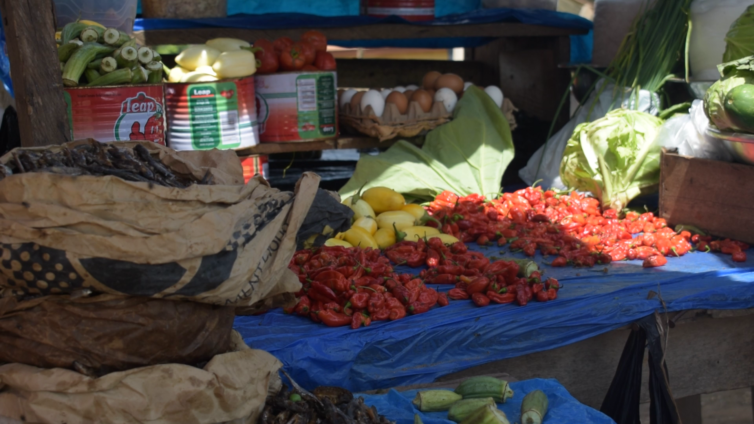Former Director of Operations at ESOKO, Nana Okyir Baidoo, has called on the government to revisit and intensify its Planting for Food and Job (PFJ) policy to enhance food production in the country.
According to him, the PFJ has the potential to fully eradicate Ghana’s food insecurity and prevent future food inflations as is being experienced now.
Speaking on JoyNews’ PM Express, the Agric Analyst said the PFJ should be the annual agricultural sector policy if the country intends to have enough locally grown food to sustain itself.
“So I’ll take you to 2019 where the PFJ programme was in full swing. So in 2019 because of the investments that was made through the PFJ programme we achieved record outputs for a lot of the staples that we eat. So for things like corn, rice, soya bean, production increased by about 53%, 42% etc. and the PFJ, I believe, should not be a one off thing.
“That should be our annual agricultural sector policy. Now if we did that and productivity consistently increased, it means that even in the event where other things are going up, at least we will have enough food to sustain ourselves,” he said.
He further pointed out that while Ghanaians currently spend a very large chunk of their monthly expenses on food, increasing food production could reduce the percentage spent on food thus allowing for monies to be spent on other pressing needs.
“So in the US, food is available through imports or local production. The average US person spends 10% of their budget on food. Let’s say US is advanced, let’s use Brazil. In Brazil, the average person spends 14% of their income on food, but in Ghana, if you earn 700 cedis a month, which is double the national minimum wage, and you spend 200 cedis a month on food, even that’s very conservative, people spend 20 cedis a day, so it means that the percentage you’re spending on food is a lot higher than it should be which will actually impact on what you have to spend on other things.
“But if we had larger production and food was cheaper and you could spend less on food and worry about other things, then we wouldn’t need to increase especially food prices this much. That will bring down food inflation,” he said.
He added that “That goes a long way to affect other things but of course, the gap between wholesale prices of food and what we find on the market is between 22 to 60% margin. So there’s a lot of things which go in there which we need to address. But at least at the production level we would have made some progress.”
Latest Stories
-
Joy FM Prayer Summit for Peace ends in electrifying worship and prayer
41 mins -
The Conscience of Leadership: A call to President Akufo-Addo on Ghana’s environmental devastation
1 hour -
Ghanaian youth unaware of their right to hold politicians accountable – Youth Bridge Foundation
2 hours -
Judge delays Trump sentencing for a third time
2 hours -
2024 WAFCON: Ghana drawn against defending champions South Africa in Group C
3 hours -
Photos from DW-JoyNews street debate on ‘galamsey’
4 hours -
Mimmy Yeboah: Blending heritage with global sophistication, confidence redefined through couture
4 hours -
100 Most Influential People Awards 2024: Brain Hill International School’s Director Mary Anane Awuku honoured
4 hours -
Akufo-Addo commissions 97-km Tema-Mpakadan railway line
4 hours -
Majority requests recall of Parliament
5 hours -
Kanzlsperger and Professor Quartey support WAFA with medical Donation
5 hours -
Gideon Boako donates 10 industrial sewing machines to Yamfo Technical Institute
5 hours -
‘Golden Boy’ Abdul Karim Razak honored at WAFU-B general assembly
5 hours -
Buipewura Jinapor secures Vice Presidential position in National House of Chiefs with record votes
5 hours -
2024 election: I want results to come out like ‘milk and honey’ – Toobu
5 hours

